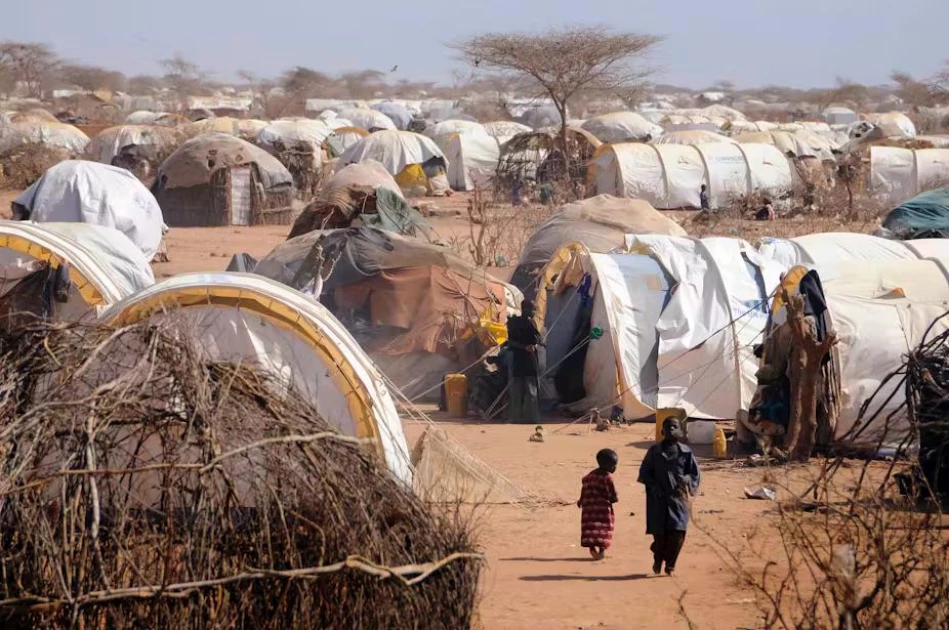Over 200,000 refugees await clearance amid underfunding crisis

People move around the outskirts of Dagahaley settlement at Kenya’s Dadaab Refugee Camp. Reuters/Jonathan Ernst

Audio By Vocalize
The number of people seeking to be cleared as refugees and asylum seekers in the country stands at over 200,000, with the figures rising by the day.
The delay has affected the process of acquiring legal documentation, with the
situation worsened by lack of funding and the tedious process by the Department
of Refugee Services.
Kenya is currently host to over 860,000 refugees and asylum
seekers, mainly from neighbouring countries plagued with insecurity and
conflict, such as Somalia, DR Congo, South Sudan, and Ethiopia, among others.
According to Deu Kamuzinzi, a refugee and the advocacy lead at Youth Voices Community, the delays in clearing the piling backlog have locked out refugees from contributing to the economy.
He noted that the delay in getting documentation has denied refugees access to
employment, education, and health services.
“Over 200,000 refugees have their applications stuck at the
Refugee Status Determination desk due to agency underfunding and low staffing,
leaving applicants in limbo,” he said.
Lucy Duku, the chairperson at Refugee Women in Nairobi, says the lack of critical documents such as work permits has denied refugees access to professional jobs despite meeting education requirements.
“Our children were born in this country and have graduated from universities
but cannot get jobs as they do not have the necessary documents like KRA PIN,”
she said.
Duku called on the government to address their concerns by
empowering women economically and enhancing their security, adding that some
have lived in the country for over 30 years.
They were addressing the press on the sidelines of a
stakeholders’ meeting to promote refugee integration and self-reliance at Avian
Court, Naivasha.
To address the issue, Kituo cha Sheria chairperson Justus Munyithya said the organisation would engage relevant government agencies to review existing legal and policy frameworks. Munyithya noted that amendments to existing laws would accelerate full refugee integration so they could enjoy the right to work, education, and health.
He said the organisation, which offers pro bono legal
services to refugees, had successfully sued the government over an attempt to
close the Kakuma refugee camp.
According to Dorothy Omboto, a lawyer and consultant researcher, existing laws limit refugee integration and access to decent work due to the tedious process of acquiring work permits.
“We are calling for the abolishment of work permit requirements for refugees
and instead demand that refugee IDs be recognised to ease their frustrations
with the current systems,” she said.
On his part, Mohammed Hassan from Refugee Hub said that only
one per cent of those seeking crucial documents from the government are cleared,
locking out thousands of others.


Leave a Comment